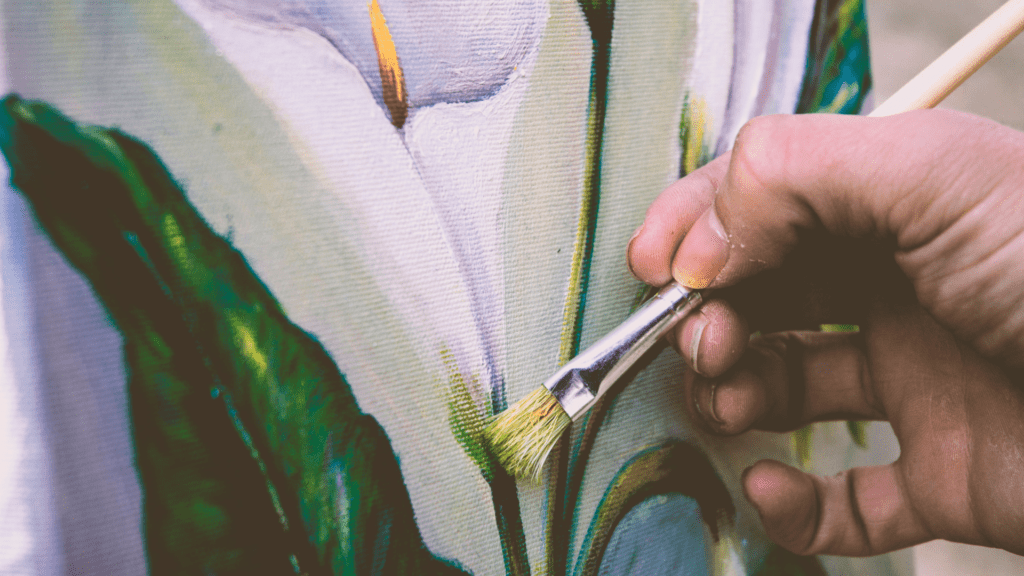In the fast-paced world we live in, it’s easy to lose sight of who we are. Between juggling responsibilities, meeting societal expectations, and dealing with life’s unpredictable challenges, we can find ourselves feeling disconnected from our true selves. Finding yourself again is a deeply personal journey that involves introspection, self-compassion, and sometimes, significant changes. This guide will walk you through practical steps to find yourself again and live a more authentic life.
Signs You Have Lost Yourself
Feeling lost or disconnected from oneself is a common experience, often stemming from various life circumstances and internal struggles. Recognizing the signs that indicate you have lost yourself and understanding the underlying reasons can be crucial steps toward reclaiming your sense of identity and well-being.
- Lack of Purpose and Direction
- You might find yourself drifting through life without clear goals or a sense of purpose. This can lead to feelings of emptiness and confusion about your life’s direction.
- Emotional Numbness
- Experiencing a lack of emotions or feeling detached from your feelings can be a sign that you have lost touch with yourself. You may struggle to feel joy, sadness, or excitement as you once did.
- Constant People-Pleasing
- When you prioritize others’ needs and desires over your own, you may begin to lose sight of your own preferences and values. This can lead to a sense of losing yourself in the process of trying to make others happy.
- Loss of Interest in Hobbies
- Activities and hobbies that once brought you joy may no longer interest you. This can indicate that you have disconnected from your passions and the things that define you.
- Feeling Overwhelmed by External Influences
- If you constantly seek validation and approval from others or allow external opinions to dictate your choices, you may feel like you have lost your own voice and sense of self.
- Identity Crisis
- Questioning who you are and feeling uncertain about your identity is a strong indicator that you have lost yourself. You may struggle to answer fundamental questions about your beliefs, values, and desires.
Reasons You Feel Lost
- Life Transitions
- Major life changes such as moving to a new city, starting a new job, or experiencing a breakup can disrupt your sense of self. These transitions often require you to adapt to new roles and environments, which can lead to feelings of disorientation.
- Overwhelming Responsibilities
- Taking on too many responsibilities at work, home, or in your personal life can leave little time for self-reflection and self-care. The constant pressure can cause you to lose sight of your own needs and desires.
- Unhealthy Relationships
- Being in a toxic or controlling relationship can erode your sense of self. Constantly accommodating another person’s demands and expectations can make you lose touch with your own identity.
- Chronic Stress and Burnout
- Prolonged stress and burnout can drain your energy and diminish your ability to connect with yourself. The focus on survival and coping can overshadow your personal growth and self-discovery.
- Neglecting Self-Care
- Failing to prioritize self-care and neglecting your physical, emotional, and mental health can lead to a disconnect from yourself. Without regular self-care, you may lose touch with what makes you feel fulfilled and balanced.
- Suppression of Emotions
- Consistently suppressing or ignoring your emotions can create an internal disconnect. Over time, this can lead to a loss of self-awareness and an inability to understand your own needs and desires.
How To Find Yourself Again?
1. Recognize the Need for Change
The first step in finding yourself again is recognizing that something needs to change. This awareness often comes from a feeling of dissatisfaction, confusion, or emptiness. It’s important to acknowledge these feelings rather than suppress them. Take some time to reflect on why you feel lost. Is it due to a significant life change, such as a job loss, a breakup, or a major transition? Understanding the root cause can provide valuable insights into what areas of your life need attention.
2. Create Space for Reflection

To reconnect with yourself, it’s essential to create space for reflection. This means setting aside regular time for introspection. Journaling is an effective tool for this purpose. Writing down your thoughts and feelings can help you process emotions and identify patterns in your behavior and thinking. Additionally, practices like meditation and mindfulness can quiet the mind and allow you to tune into your inner voice. Even taking a walk in nature can provide the mental clarity needed for self-reflection.
3. Reconnect with Your Passions

Often, when we lose ourselves, we also lose touch with the activities and interests that once brought us joy. Think back to the things you used to love doing. What hobbies or interests made you feel alive and fulfilled? Whether it’s painting, writing, playing a sport, or any other activity, make an effort to reintroduce these passions into your life. They can serve as a powerful reminder of who you are and what you love.
4. Evaluate Your Relationships
The people we surround ourselves with can have a significant impact on our sense of self. Evaluate your relationships and consider whether they support your authentic self or if they contribute to your feelings of being lost. It’s important to surround yourself with individuals who uplift and encourage you, rather than those who drain your energy or make you feel inadequate. Sometimes, finding yourself again may involve distancing yourself from toxic relationships and seeking out new, positive connections.
5. Set Boundaries
Setting healthy boundaries is crucial for maintaining a strong sense of self. Without boundaries, it’s easy to become overwhelmed by external demands and lose sight of your own needs and desires. Learn to say no when necessary and prioritize your well-being. Setting boundaries doesn’t mean being selfish; it means recognizing your limits and respecting your own needs. This practice can help you preserve your energy and stay true to yourself.
6. Embrace Solitude

Spending time alone can be intimidating, especially if you’re used to constant social interaction. However, solitude can be incredibly healing and enlightening. It provides an opportunity to reconnect with your inner self without distractions. Use this time to explore your thoughts, feelings, and desires. Solitude can help you gain a deeper understanding of yourself and what you truly want out of life.
7. Practice Self-Compassion
Finding yourself again is not always a smooth journey. It’s important to be kind and compassionate with yourself during this process. Acknowledge that it’s okay to feel lost and that self-discovery takes time. Treat yourself with the same kindness and understanding you would offer a close friend. Self-compassion involves recognizing your inherent worth and forgiving yourself for any perceived shortcomings.
8. Reassess Your Goals and Values
As we go through life, our goals and values can change. Take the time to reassess what truly matters to you. Are your current goals aligned with your true self, or are they influenced by external pressures and expectations? Clarifying your values can provide a sense of direction and purpose. Write down what is most important to you and consider how you can align your life with these values.
9. Seek Professional Guidance

Sometimes, finding yourself again can be challenging without external support. Seeking guidance from a therapist or life coach can provide valuable insights and tools for self-discovery. A professional can help you navigate through your feelings, identify underlying issues, and develop strategies for reconnecting with your true self. Don’t hesitate to reach out for help if you feel stuck or overwhelmed.
10. Embrace Change
Finding yourself again often requires embracing change. This might involve making significant adjustments in your life, such as changing careers, moving to a new place, or ending a relationship. Change can be scary, but it can also be incredibly liberating. Trust that these changes are steps toward living a more authentic and fulfilling life. Embrace the unknown and have faith in your ability to adapt and grow.
11. Cultivate Mindfulness
Mindfulness is the practice of being present in the moment and fully engaging with your experiences. It can help you become more aware of your thoughts, feelings, and behaviors, allowing you to make conscious choices that align with your true self. Incorporate mindfulness practices into your daily routine, such as deep breathing, meditation, or simply paying attention to your surroundings. Mindfulness can help you stay grounded and connected to your inner self.
12. Celebrate Your Progress
As you embark on this journey of self-discovery, it’s important to celebrate your progress, no matter how small. Acknowledge the steps you’ve taken to reconnect with yourself and recognize the positive changes in your life. Celebrating your progress can boost your confidence and motivate you to continue your journey. Remember that self-discovery is a lifelong process, and every step forward is a victory.
Final Word From Blissed Men
Finding yourself again is a deeply personal and transformative journey. It involves introspection, self-compassion, and often, significant changes in your life. By recognizing the need for change, creating space for reflection, reconnecting with your passions, evaluating your relationships, setting boundaries, embracing solitude, practicing self-compassion, reassessing your goals and values, seeking professional guidance, embracing change, cultivating mindfulness, and celebrating your progress, you can rediscover your true self and live a more authentic and fulfilling life. Remember, the journey to self-discovery is ongoing, and each step you take brings you closer to the person you are meant to be.

